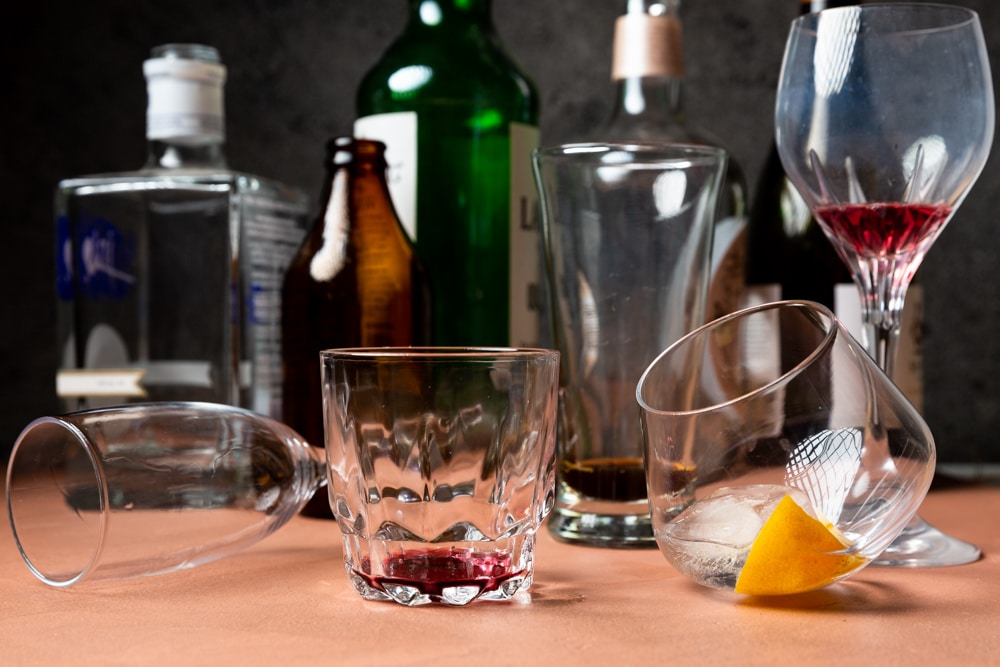The impact of excessive alcohol consumption is yet to be fully seen, but local Salvation Army addiction services are reporting an increase in demand for assistance during the ACT lockdown.
ACT Salvation Army representative Wendy Hateley said people who have been accessing addiction services at their ACT sites have reported that lockdown has exacerbated their addiction.
“During lockdown, our Fyshwick site are unable to take any residents into the facility but have seen an increase in demand for their day program,” Ms Hateley said.
“The Braddon facility has also seen an increase in demand for their day service addiction program.”
People using the Braddon services have said that lockdown has increased their addiction issues, and workers said they can see how lockdown is impacting the mental health of their clients.
Although there has already been an increase in demand for addiction services, Ms Hateley said the full effects lockdown are having on people’s drinking and addiction habits won’t be seen until people are required to go back to work.
“People are at home and not realising how much they’re drinking, and the people in our programs are reporting they’re using alcohol and other drugs more frequently since being at home,” she said.
“Our Braddon facility have said they are seeing people increase their drug and alcohol use because they are alone, which has exacerbated the issue.”
Director of Canberra-based Toora Women Inc. Alcohol and Other Drug (AOD) Services, Rebecca Wood, said they were finding a similar situation, and the women in their services reported an increase in alcohol usage at the beginning of the pandemic.
“More women in crisis started to reach out in the beginning of lockdown for things like homelessness, domestic violence, and addiction, but then the numbers declined a little because some of them realised they didn’t want help right now as the substances were helping them deal with everything else going on,” Ms Wood said.
“They also reported an increase in alcohol consumption because there’s less accountability everywhere. They didn’t have to leave the house to drive the kids to school, the women in violent situations were using it as a coping mechanism, and they didn’t have to physically show up to our programs, they could just use Zoom.”
She said alcohol consumption has definitely increased because of COVID-19 and more education was required as it’s too widely accepted as normal, and many people don’t see it as a problem.
“A lot of women using our services swap out substances for alcohol as it’s legal and advertised as something that’s socially acceptable, so it’s challenging for people to realise the health severities of drinking.”
A poll conducted by the Australian National University revealed one in five people over the age of 18 reported increased alcohol use, with almost half of these having one to two extra drinks per week and 28 per cent having three to four extras.
Although a higher proportion of Australians (27 per cent) reported a decrease in their alcohol consumption compared to those (20.2 per cent) who reported an increase, the ANU said there is a significant uncertainty around these estimates due to small sample sizes and a large margin of error.
In Victoria, the most recent ABS data shows a 33 per cent increase in alcohol retail sales between 2019 and 2020, reaching a record $3.45 billion.
This year is set to exceed that record increase, with alcohol retails sales in the first quarter of 2021 reaching $810.9 million compared to $713.9 million in 2020.
Retail Drinks Australia CEO Michael Waters revealed retail liquor sales have increased over the last 18 months due to the widescale closure of on-premises venues, including pubs, nightclubs, and cafés, but this increase hasn’t been enough to offset an overall decline in total liquor sales.
“The vast majority of Australians have continued to exhibit responsible drinking behaviours throughout the various lockdown periods during the Covid-19 pandemic. This can be demonstrated through consumption trends with a recent ANU poll noting that 80 per cent of respondents had reported either ‘no change’ or a ‘decrease’ in their alcohol consumption in May 2020 since the spread of Covid-19,” Mr Waters said.
“The retail liquor sector did observe some initial panic buying of alcohol associated with the very first series of lockdowns in March 2020. As anticipated, takeaway liquor sales largely normalised shortly thereafter, and the implementation of voluntary quantity limits has been one of the ways in which retailers have shown a commitment towards responsible retailing throughout the pandemic.”
If you or anyone you know is suffering from addiction, please contact any of the following helplines:
Get all the latest Canberra news, sport, entertainment, lifestyle, competitions and more delivered straight to your inbox with the Canberra Daily Daily Newsletter. Sign up here.



